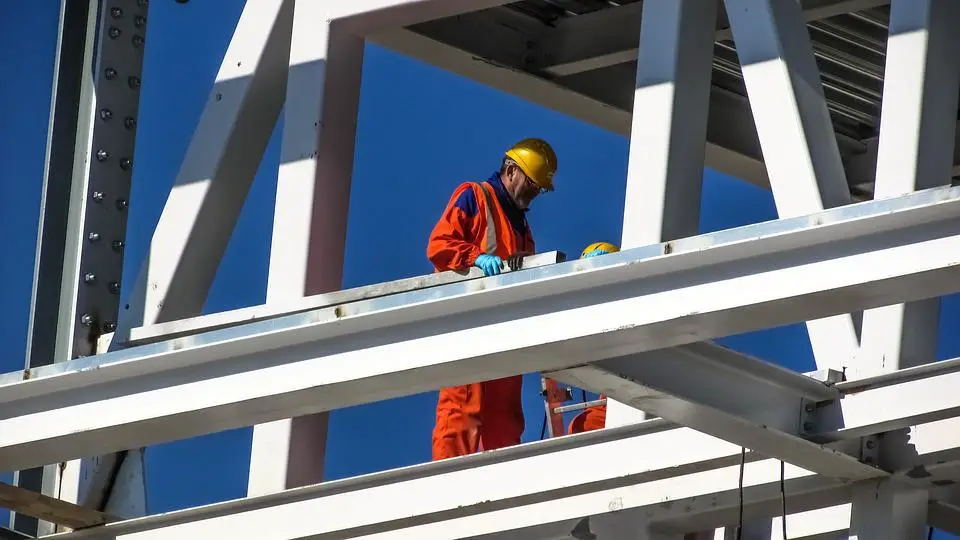As Poslovni Dnevnik/Darko Bicak writes, there are fewer and fewer ”homegrown” workers in the Croatian construction industry, and an increasing number of foreign workers on construction sites pose a number of challenges to the companies that hire them, according to the panel discussion “Challenges of the workforce” which was held in Zagreb recently.
Dragutin Kamenski, the director of the very well known company Kamgrad, pointed out that if the country successfully removed all other challenges that the Croatian construction industry is currently facing, and only the lack of manpower remaind, we’d still be in trouble.
A very complex process
“Now, the state has begun to take steps to facilitate labour migration, but it remains to be a very complex process because it requires additional efforts in bringing and introducing a new workforce to a particular company, as well as additional organisation and costs. As there is no additional base for recruiting labour here in Croatia, it’s clear that in the long run we’re doomed to importing foreign construction workers under any conditions,” said Kamenski, adding that so far, they have had all kinds of situations with agencies that bring in foreign workers arise.
“Recently, a large number of agencies have appeared that bring in foreign labour, and time will show which ones are good and bring in high quality workers, and which aren’t. If you end up with inadequate workers, it raises your costs and you’re less competitive overall,” Kamenski pointed out.
Based on his own many years of experience, he stated that in fact the best workers were those who did their training within large construction systems, and then eventually moved to smaller companies such as Kamgrad.
However, he is aware that is now rapidly becoming a thing of the past and that such workers no longer exist, and that now the focus should be on developing the Croatian construction industry’s workers here in the country, and even more on selecting and introducing a foreign worker and then educating and introducing them to the whole process.
“Technical staff without knowledge of the Croatian language can only do a small range of work. We employ 10-15 trainees a year, of which only one or two remain,” concluded Kamenski. Danijel Risek, the director of Hidroing, pointed out that they’re a relatively small company that didn’t have any major needs for the import of foreign labour, and what they did experience had a focus on nearby Kosovo.
“We’re too small a company to go into the process of finding a workforce on our own, so we’re referred to agencies. It’s important to have a correct relationship with such agencies so that they know exactly what we need,” said Risek. Stjepan Jagodin, the director of Pinoy385, a company specialising in the employment of Filipino workers, said that there are currently more than 300 agencies across the Republic of Croatia registered for employment mediation.
“An unregulated market leads to a situation where everyone comes to us, without any selections and conditions, and then the problem is that companies that hire such workers. In tourism, there are precise conditions that you must have and know in order to open an agency, and employment mediation can be done by anyone. That must be regulated urgently,” Jagodin said.
Knowledge of the market
Ana Jadresin from the Manpower Group pointed out that it takes time for the market for mediation in the employment of foreign workers to be profiled. “Agencies that deal with employment mediation, be they domestic or foreign, must have a good knowledge of the market and the needs of their clients – what exactly companies need, what qualifications are necessary, what level of digital literacy there is, etc.
The problem is often that the client himself doesn’t know what kind of workers he needs and what qualifications will be necessary, so it becomes difficult to meet their expectations. On the other hand, it’s pointless to give unrealistic promises to foreign workers about a country with rivers full of milk and honey, because that only leads to frustration,” stated Jadresin.
The issue faced by the Croatian construction industry isn’t something new. The demographic crisis the country has been in for a very long time now has been a gradual drain on labour across all fields, even with the tourism sector, otherwise the country’s strongest economic branch, also suffering tremendously. The Ministry of the Interior’s infamously drawn out and draconian procedures often result in employers not getting work permits approved for their foreign staff in time, resulting in the dire need for a rethink.
For more, make sure to check out our dedicated business section.









